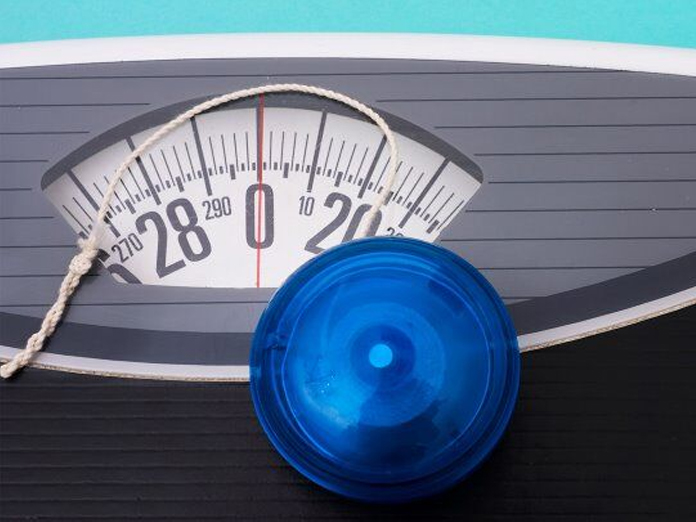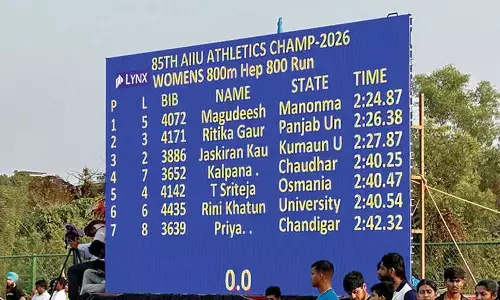‘Crash’ diets are potential health hazards

Crash diets often prescribed for quick weight loss are usually unbalanced and lead to health issues that can be dangerous in the long run, a new review of popular diets published in Indian Journal of Medical Research has warned
New Delhi (India Science Wire): ‘Crash’ diets often prescribed for quick weight loss are usually unbalanced and lead to health issues that can be dangerous in the long run, a new review of popular diets published in Indian Journal of Medical Research has warned.
Researchers classified extreme diets into low-carbohydrate (less than 100 grams per day) and high-fat (over 60%) such as Atkins’s Diet and Protein Power Lifeplan; low-fat (11-19 %) such as the Dean Ornish Diet and the Pritikin diets; and the very-low-fat (less than 10 %) diet.
They then analysed reasons behind weight loss across various popular diets and their effects on the body. The analysis has been done by Dr Viswanathan Mohan (Madras Diabetes Research Foundation) and Dr Shilpa Joshi (Mumbai Diet & Health Centre).
Weight loss that occurs due to restriction in carbohydrates in ‘low-carbohydrate/high-fat’ diet in the early stages is due to water loss.
Thereafter, weight loss is due to lesser intake of carbohydrates rather than fat being used up, as is popularly believed. This is because even though the individual is allowed to eat fats the actual consumption is not as much.
One of the reasons could be that one cannot consciously consume too much dairy fat and most Indians take more vegetarian food on a daily basis than eggs or meat.
Low-carbohydrate/high-fat diets taken over a period of time may cause the body’s immunity system to malfunction and cause damage to various organs. As low-carbohydrate diets encourage low intake of fruits, vegetables and dietary fibre, it may increase risk of intestinal cancers.
Very high protein intake makes bones weak as calcium gets removed via urine thereby making it unavailable to bones.
Low-fat diets are also usually by default high-carbohydrate diets and include vegetables, fruits, whole grains and beans, egg white, non-fat dairy, soya and white flour.
They decrease bad cholesterol during early stages but eventually lead to an increase in stored fat (triglyceride levels) if the diet contains more than 70 per cent carbohydrates.
However, if sufficient fibre is included cholesterol levels and blood pressure may decrease, leading to reduction in antihypertensive medications. These diets also usually decrease blood glucose and insulin levels thus benefitting diabetics.
The study recommends a short-term ‘very low carbohydrate diet’ (less than 800 kcals per day or 80 grams carbohydrate and 15 grams fat per day) to induce weight loss and to achieve a favourable metabolic profile.
Lean body mass is preserved by providing adequate dietary protein in the form of milk, soy or egg-based powder which is mixed with water and consumed as a liquid. Recommended daily allowance (RDA) of essential vitamins and minerals is also ensured.
The source of protein may be from lean meat, fish and poultry. These diets must be supplemented with a multivitamin and 2 to3 grams per day potassium and adequate fluid intake.
A very-low-carbohydrate diet also markedly increases the death rate due to low blood sugar causing loss of energy and can have serious consequences, if left untreated.
The study concludes that maintaining negative energy balance deficit of 500-1000 kcals per day is essential for weight loss. As this is very difficult to attain and sustain on a regular basis, the ‘drop out’ rate is also high.
It proposes that a balanced and tasty diet which could lead to weight loss should have lesser calorie intake, moderate carbohydrate (40 - 50%) and fat (30%) diets with healthy monounsaturated fats and adequate protein (20-25 %) along with plenty of green leafy vegetables.

















